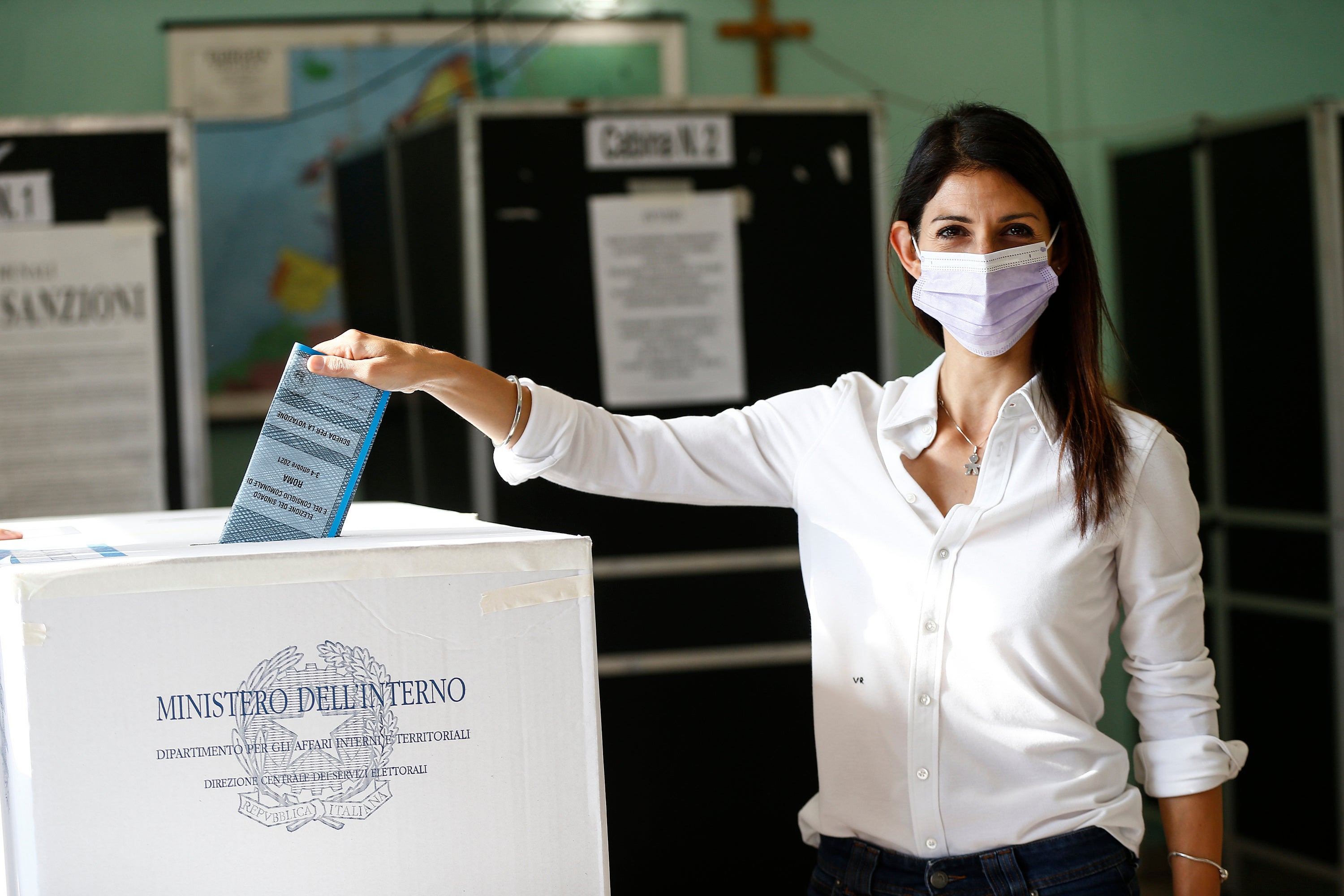1st projections: Rome mayor may fall short of making runoff
Ballot counting has begin in Italy after two days of voting for mayors in many cities

Your support helps us to tell the story
From reproductive rights to climate change to Big Tech, The Independent is on the ground when the story is developing. Whether it's investigating the financials of Elon Musk's pro-Trump PAC or producing our latest documentary, 'The A Word', which shines a light on the American women fighting for reproductive rights, we know how important it is to parse out the facts from the messaging.
At such a critical moment in US history, we need reporters on the ground. Your donation allows us to keep sending journalists to speak to both sides of the story.
The Independent is trusted by Americans across the entire political spectrum. And unlike many other quality news outlets, we choose not to lock Americans out of our reporting and analysis with paywalls. We believe quality journalism should be available to everyone, paid for by those who can afford it.
Your support makes all the difference.Ballot counting began Monday in Italy after two days of voting for mayors in many cities, and exit polls on Italian state TV indicated that populist Rome Mayor Virginia Raggi failed to automatically win a second term and might not have won enough to even clinch a runoff spot.
First projections on a small percentage of votes counted in other cities indicated other key races also appeared headed for runoffs on Oct. 17-18, in line with opinion polls in recent weeks.
One important exception seemed to be Milan's center-left Mayor Giuseppe Sala, who, if state TV's early projections hold, appeared to be headed to victory Monday by clinching 56% of the vote, or 6% more than what's required to avoid a runoff with the second-place candidate.
First projections for Rome indicated that Raggi was trailing the top two vote-getters by some 10% points, RAI state TV said, but other media's projections indicated she might have clinched a runoff berth.
Leading in state TV's projections for Rome were a center-left candidate and a center-right candidate, with neither winning more than 50% of the vote.
First partial actual results were expected a few hours after the polls closed at 3 p.m.
In all, 12 million of Italy's 60 million population were eligible to vote in 1,000 cities and towns nationwide.
When Raggi was elected as Rome mayor in 2016, she was one of the most prominent faces in the 5-Star Movement, the populist party that is now the largest party in Parliament. But the Italian capital's entrenched problems that she inherited — unreliable trash collection, mass transit woes and streets in dire need of repair — have largely persisted during her tenure.
The 5-Star Movement's new leader, former Premier Giuseppe Conte, rebuffed overtures from the left, notably from the Democratic Party, for a campaign alliance to keep the rising right-wing political forces out of Rome's City Hall.
But where the Movement's candidate did run in a campaign alliance with the Democrats and other smaller left-leaning groupings, first projections indicated that appeared to be a successful move.
Among the cities where candidates backed by both the 5-Stars and the Democrats appeared headed to victory without needing runoffs were Naples and Bologna, according to state TV projections.
With national elections due in early 2023, Democrat Party leader Enrico Letta a former premier, has been trying to convince the Movement to consider campaign alliances in voting for Parliament. He is determined to shut out of Italy's next government the right-wing forces which in past years have been gaining in popularity.
How anti-migrant Matteo Salvini s right-wing League party fares in races in Italy's south was being closely watched as a litmus test of whether he can definitely convert his north-based political power into a nationwide force.